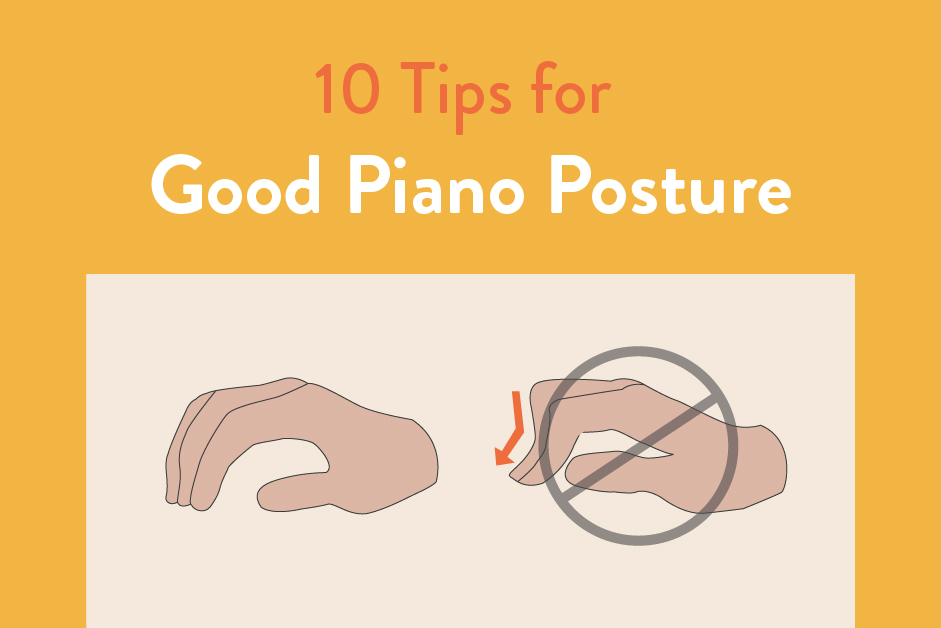Learning to play the piano can be a joyful journey. It’s a skill that opens doors to creativity and expression.
Helping your child discover the piano’s magic is rewarding. But where to start? The piano is more than just keys and notes; it’s a pathway to music’s heart. Encouraging your child to embrace this instrument can boost their confidence and enhance their cognitive skills.
It can nurture patience and discipline. Whether they dream of playing Mozart or creating their own melodies, support is key. With the right guidance, children can find joy in every chord. This blog will share practical tips to make piano learning a fun and engaging experience. Let’s explore how you can help your child embark on this musical adventure.
Choose The Right Instrument
Learning to play the piano is a wonderful journey for your child. Choosing the right instrument is crucial for their success. A good piano can make practice enjoyable and help them learn faster. Let’s explore how to select the best piano for your child.
Find The Right Size
Pianos come in various sizes. A full-size piano is ideal for older children. Younger children may struggle with a full-size piano. Smaller keyboards are a good option for beginners. Ensure the keys are weighted. Weighted keys mimic the feel of an acoustic piano. This helps build strength and proper technique.
Consider Digital Options
Digital pianos are a great choice for many families. They are often more affordable. They take up less space. Some have features like headphone jacks. This allows your child to practice quietly. Digital pianos can also connect to learning apps. These apps can make practice more engaging.
Create A Practice Schedule
Creating a practice schedule is essential for helping your child learn piano. It ensures consistency and progress. A structured routine helps maintain discipline and builds a habit. Here are some tips to create an effective practice schedule.
Set Regular Times
Choose specific times for practice each day. Consistency is key to building a routine. Morning or evening sessions work best. Ensure these times fit well with your child’s daily activities. Regular practice helps retain skills and encourages growth.
Balance With Other Activities
Avoid overwhelming your child with piano practice. Balance piano with other activities. Include breaks and fun times. This keeps practice enjoyable and sustainable. A balanced schedule prevents burnout and keeps your child motivated.
Make Learning Fun
Learning the piano can be a fun experience for children. Fun activities keep them engaged and excited. Below are some tips to make learning enjoyable for your child.
Use Games And Apps
Using games and apps can make piano learning fun. Many piano apps offer interactive lessons. These apps often include colorful graphics and fun sounds. Kids enjoy these features, which help them stay interested. Some apps also provide feedback. This helps children learn and improve their skills. Try different apps to find the one your child likes best.
Incorporate Favorite Songs
Learning a favorite song can be very motivating. Ask your child about their favorite songs. Then, find simple versions of these songs for beginners. They will be excited to play something they love. It will also help them practice more. This method makes learning the piano feel less like a chore. It turns practice time into fun time.
Set Realistic Goals
Helping your child learn the piano can be a rewarding experience. Setting realistic goals is crucial. It keeps them motivated and avoids frustration. Here’s how you can make the process smoother.
Start With Simple Pieces
Begin with easy songs. Choose pieces suitable for beginners. Simple melodies can boost confidence. They’re easier to learn and play. Gradually introduce more complex pieces as skills improve.
Celebrate Small Achievements
Recognize every small win. Praise their efforts. Celebrate each milestone. It encourages them to keep going. Rewarding progress builds self-esteem. It makes learning more enjoyable and fun.
Provide Positive Reinforcement
Praise every small achievement your child makes on the piano. Positive reinforcement encourages them to continue practicing and learning. Celebrate progress to build their confidence and passion for music.
Providing positive reinforcement is key in helping your child learn how to play the piano. Encouragement and rewards can fuel their motivation and make practice sessions enjoyable. When your child feels supported, they’re more likely to stick with it and improve their skills.
Use Encouragement
Words have power. Compliment your child’s efforts, not just their achievements. Saying “I love how you tried that new piece today” can boost their confidence. Encouragement can come from sharing your own experiences. Tell them about a time you struggled but persevered. This shows that it’s okay to face challenges and reinforces the idea that growth comes with effort. Ask yourself, how does your child respond to different types of praise? Tailor your words to what makes them feel most valued. This personalized approach can have a lasting impact on their learning journey.
Reward Progress
Rewards can be a great motivator. Instead of waiting for perfection, celebrate small victories. Did they master a tricky chord? That’s a win worth acknowledging. Create a reward system that suits your child. It could be something as simple as stickers on a chart or a special outing after reaching a milestone. Make sure the rewards are meaningful to them. Think about the balance between rewards and expectations. Too many rewards might dilute their effect, but too few can lead to frustration. Finding the sweet spot keeps your child engaged and eager to learn more. By focusing on encouragement and rewarding progress, you create an environment where learning is both fun and fulfilling for your child. How will you make piano lessons a positive experience today?

Credit: www.musikalessons.com
Find A Good Teacher
Finding the right piano teacher is crucial for your child’s success. A skilled teacher can inspire and guide your child. Their encouragement can make learning enjoyable and rewarding. With the right approach, your child will look forward to lessons. But how do you choose the best teacher?
Look For Experience
Experienced teachers understand how children learn. They adapt their methods to suit individual needs. Their background in teaching young students is essential. A seasoned teacher knows the challenges beginners face. They can offer solutions that work for each child. Ask about their years of teaching experience. Check if they have taught children of similar age. It ensures they understand your child’s learning style.
Consider Online Lessons
Online lessons offer flexibility and convenience. They fit into busy schedules easily. Many skilled teachers provide lessons virtually. This expands your options beyond local choices. Online lessons can be equally effective. They often use engaging tools and resources. Virtual lessons can be a great way to start. Your child can learn in a familiar environment. It can make them more comfortable and relaxed.
Encourage Performance Opportunities
Encouraging performance opportunities can significantly boost your child’s piano learning experience. Performing in front of others builds confidence and helps in overcoming stage fright. It also provides a sense of accomplishment and motivation to improve. Let’s explore some effective ways to create these performance opportunities.
Organize Family Recitals
Family recitals are a great way to start. They offer a comfortable setting for your child. Invite close family and friends to attend. Let your child choose a few pieces to perform. This intimate audience will provide positive feedback and support. You can make it a regular event, like once a month. Each recital can be a stepping stone to larger audiences.
Participate In Local Events
Look for local events that welcome young performers. Community centers often hold talent shows and open mic nights. Schools may have music nights or assemblies. Libraries sometimes host children’s events where performances are welcomed. These events offer real-world experience. They help your child understand different audience reactions and settings. Participating in these events also connects your child with other young musicians. This can be inspiring and encouraging.

Credit: www.hoffmanacademy.com
Be Patient And Supportive
Learning to play the piano can be challenging for children. Your patience and support play a huge role in their progress. Children respond well to encouragement and understanding. They need to feel that it’s okay to make mistakes. This fosters a positive learning environment. Let’s dive into ways you can be patient and supportive effectively.
Avoid Pressuring
Pressure can make learning stressful. Let your child set their own pace. Celebrate small achievements rather than pushing for perfection. This approach keeps the experience enjoyable. Remember, patience is key to a child’s success in learning.
Offer Help When Needed
Be available to assist your child. Answer questions and help with difficult sections. Your involvement shows that you care. But avoid taking over their practice sessions. Encourage them to solve problems independently. This builds their confidence and skills. Balance your support with independence. This creates a healthy learning atmosphere.
Teach Music Theory Basics
Learning music theory builds a strong foundation for piano playing. It helps children understand the language of music. This knowledge makes playing the piano more enjoyable and meaningful. Start with simple concepts. Break them down into digestible parts. Children grasp ideas better when they are easy to understand.
Music theory is not just about memorizing terms. It is about understanding how music works. Teaching these basics can enhance your child’s musical journey. Here are a few key areas to focus on.
Introduce Note Reading
Begin with the notes on the piano. Show your child where each note is located. Use simple exercises to help identify them. Use visual aids like flashcards. They reinforce learning and make it fun.
Teach the staff and the clefs. Explain the difference between treble and bass clef. Practice regularly. The more they practice, the more confident they become.
Explain Rhythms And Beats
Rhythms and beats are the heartbeats of music. Start with basic time signatures like 4/4. Clap out simple rhythms together. It helps children feel the pulse of music.
Introduce the concept of beats and measures. Use a metronome to keep steady timing. This tool is helpful for young learners. Explore different rhythms and encourage creativity. Make learning rhythms interactive and engaging.
Create A Musical Environment
Create a musical environment by setting up a dedicated piano practice space at home. Keep the area quiet, comfortable, and free of distractions. This encourages your child to focus and enjoy learning the piano.
Creating a musical environment at home can be a game-changer for your child’s piano journey. It goes beyond just having a piano in the living room. It’s about surrounding them with diverse musical experiences that spark curiosity and passion. ###
Play Different Genres
Expose your child to a variety of music genres. Classical music might be the starting point, but don’t stop there. Jazz, rock, pop, and even world music can provide fresh perspectives and inspire creativity. Imagine the excitement when your child recognizes a jazz riff or a pop melody and tries to recreate it on the piano. This diversity keeps practice sessions interesting and prevents monotony. It also broadens their understanding of how music works across different styles. ###
Attend Live Performances
Take your child to live performances whenever possible. Nothing compares to the energy and excitement of a live concert. It creates lasting memories and can ignite a deeper interest in music. Children often find inspiration in watching musicians perform live. They see the joy and passion of performers, which can be incredibly motivating. Plus, attending various performances helps them appreciate different instruments and musical arrangements. Encouraging your child to engage with music in diverse ways enriches their learning experience. Have you ever noticed how a simple shift in environment can lead to unexpected discoveries?

Credit: www.hoffmanacademy.com
Frequently Asked Questions
What Age Should A Child Start Piano?
Children can start piano lessons as early as age 4. Early exposure helps develop motor skills and musicality. Tailor lessons to the child’s interest and attention span.
How Long Should A Child Practice Piano?
Children should practice piano for 15-30 minutes daily. Consistent practice builds skills and confidence. Short, frequent sessions are more effective than long, sporadic ones.
What Are The Benefits Of Learning Piano For Kids?
Learning piano improves cognitive skills, enhances coordination, and boosts self-discipline. It also fosters creativity and provides a sense of accomplishment.
How Can Parents Support Piano Practice?
Parents can support by setting a regular practice schedule. Encouragement and creating a positive environment are essential. Celebrate small achievements to keep motivation high.
Conclusion
Helping your child learn the piano can be a rewarding journey. Use these 10 tips to make the process smoother. Patience and practice are key. Encourage regular practice sessions. Celebrate small achievements. Create a positive environment. Let your child choose songs they enjoy.
This keeps learning fun. Remember, progress takes time. Stay supportive and patient. With dedication, your child will enjoy playing the piano. Happy learning!
